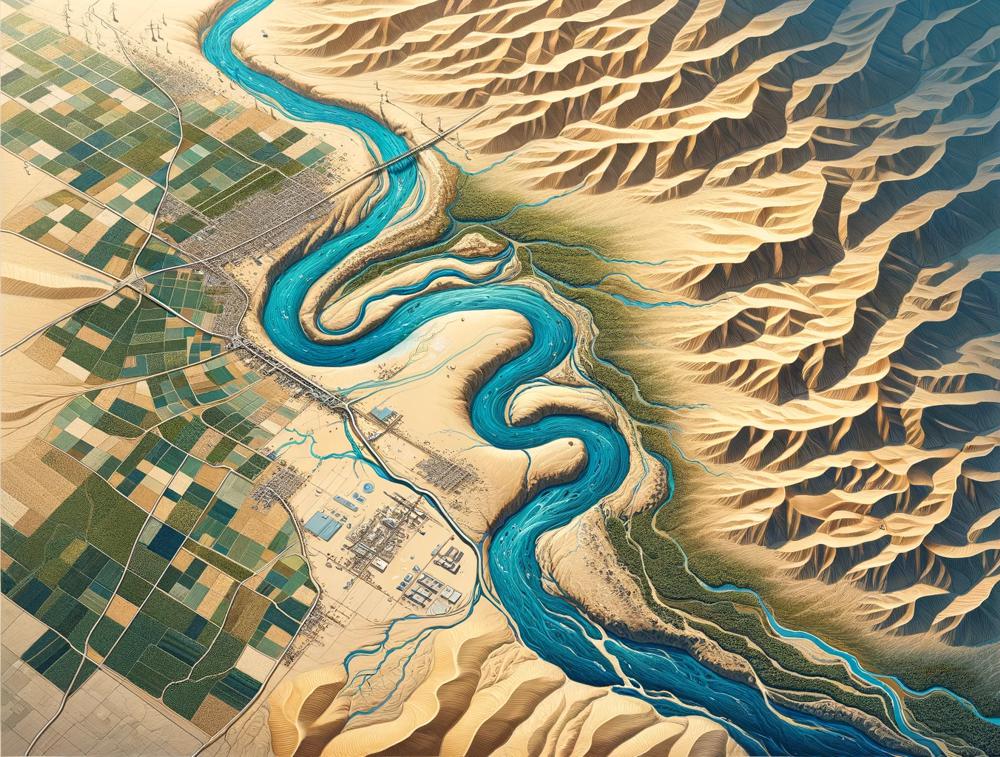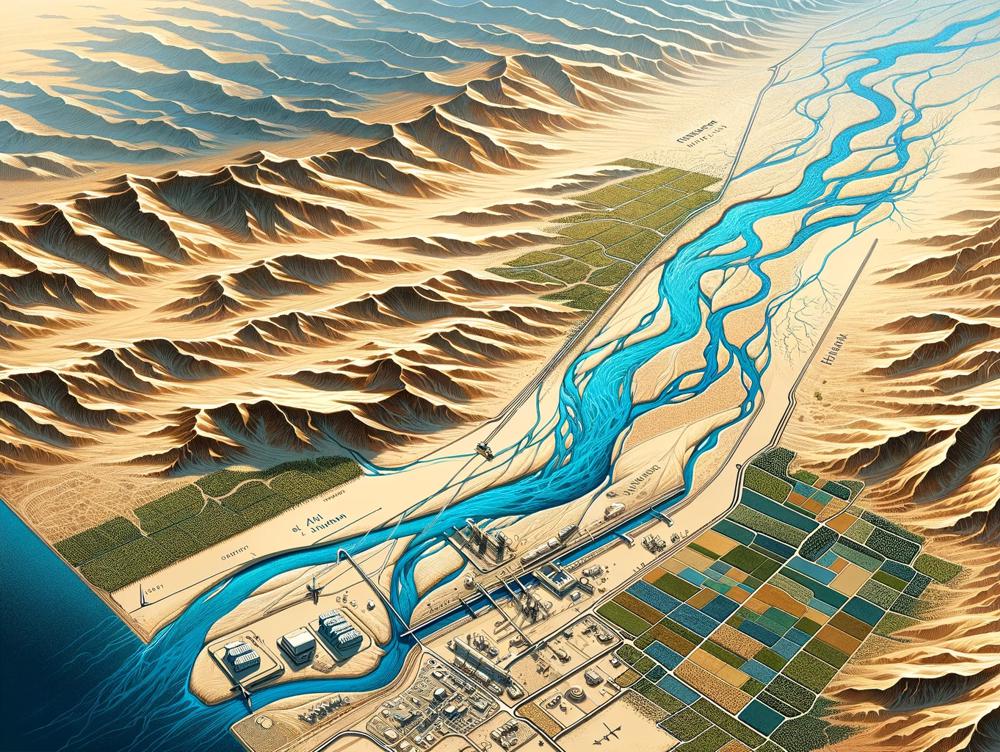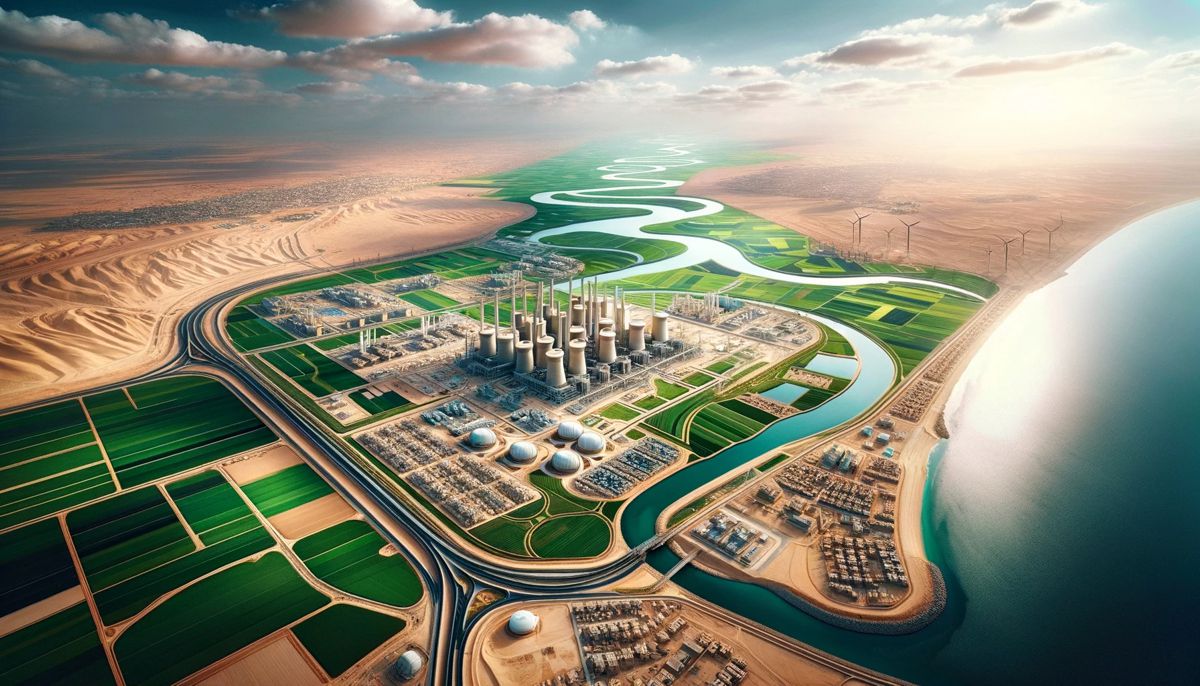The New Nile – Egypt’s ambitious endeavour to Reclaim the Desert
In the sweltering southwest of Cairo, where the arid expanse once ruled, an ambitious vision is coming to life. Egypt is orchestrating an agricultural revolution, an oasis of epic proportions, termed as the New Delta Project. This vast undertaking aims to transform 6,000 square kilometres of desert into fertile farmland, supported by modern infrastructure, including the world’s largest wastewater treatment plant and a ground-breaking artificial river.
The project is poised to unfold in phases, with the first milestone expected by 2025. This phase promises to revolutionize desert farming, intertwining hundreds of kilometres of new roads, residential zones, power facilities, and a colossal gigafarm. By 2030, the project anticipates doubling the reclaimed land, thereby amplifying its potential manifold.
Dubbed ‘reclaimed’, this land is not barren but fertile soil that is thirsty for sustainable irrigation and careful stewardship. Egypt’s bold move to invest billions into this initiative, despite the majestic Nile gracing its terrain, is a testament to a dire necessity—the battle against a looming water crisis.
With a population surge forecasted to hit 115 million by 2024, Egypt grapples with a dire water shortage. The agricultural industry, constituting 14% of Egypt’s GDP, is under threat due to insufficient water to sustain its fertile lands, escalating the urgency for water rationing and even water transportation to remote regions. The United Nations flags Egypt as one of the countries with the most critical water deficits, risking running dry by 2025.

Compounding the crisis is Ethiopia’s Grand Renaissance Dam, a hydroelectric colossus that curtails the Blue Nile’s flow, crucial to Egypt and Sudan. While powering Ethiopia, the dam presents a diplomatic and environmental quagmire, highlighting the geopolitical complexities of water security.
The New Delta Project not only aims at agricultural rejuvenation but also serves as a strategic buffer against potential catastrophes, such as the collapse of Ethiopia’s dam. With ingenious engineering, the project is linked to the Nile via gates and tunnels designed to mitigate flood risks.
Climate change and desertification add to Egypt’s woes, with a mere 5% of the land cultivated despite 20% being arable. The nation’s status as a leading importer of essential grains and oils underscores the paradox of its agricultural potential versus reality.
The New Delta Project heralds a beacon of hope for millions reliant on agriculture for their livelihoods, offering a promise of employment and stability. The project steers clear of the Nile’s waters for irrigation, instead championing the innovative reuse of wastewater through the Alham Water Treatment Plant, poised to deliver a significant water supply daily.
In an era where desalination plants are deemed cost-prohibitive, Egypt’s reliance on this mega project’s underground reservoirs and treatment facilities exemplifies a strategic pivot to self-reliance. The project’s artificial river, poised above the Nile, is designed to serve not just as an irrigation channel but as a safeguard against flooding, opening gates only when the Nile swells beyond its banks.

The genesis of this monumental plan dates back to 2006, a testament to the meticulous research and planning dedicated to ensuring its feasibility. The El Dabaa axis, once a barren desert, is set to become a nexus of activity, with connections to major airports and highways bolstering its accessibility.
The Al-Hammam River, a 114-kilometer artificial marvel, is a central element of the project, flanked by a network of canals, pipelines, lift stations, bridges, and reservoirs. The Al-Hammam multi-purpose wastewater facility stands as a world leader in triple treatment technology.
Discoveries of vast underground water reserves have further fortified the project’s vision, providing a sustainable water source for the ambitious initiative. With these elements converging, Egypt is poised to reclaim its agricultural prowess, transitioning from a major food importer to a potential exporter.
Multinational companies are taking note, with significant investments flowing into the region, recognizing the strategic and economic potential of the New Delta Project. The initiative, which might cost an exorbitant sum in Western economies, is being achieved in Egypt at a fraction of the cost, a testament to the nation’s innovative and sustainable approach to development.
As the project advances towards completion, on time and within budget, Egypt stands at the cusp of a green revolution that may well reshape its destiny, restoring its agricultural heritage and securing a sustainable future for its burgeoning population.





























